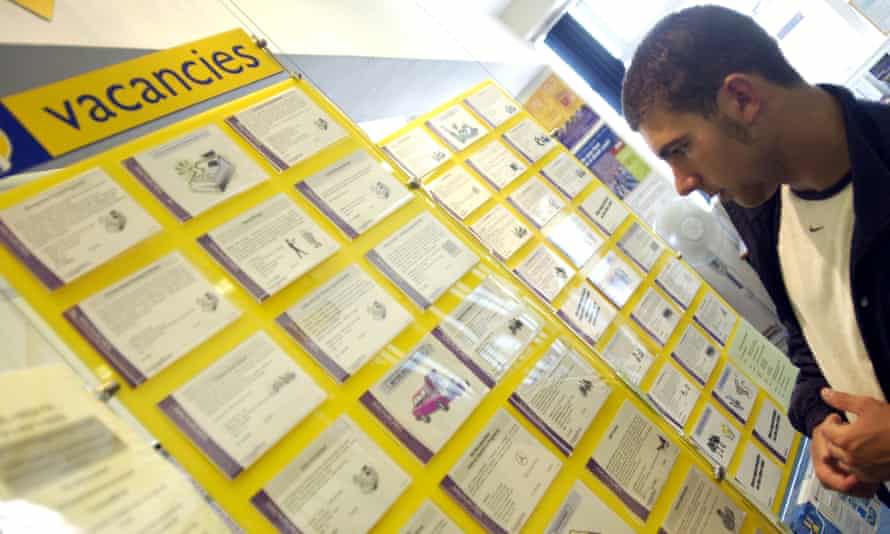Extract from The Guardian
Algorithms
decide which applications reach human managers’ eyes. But they sort out
people with unusual work histories or who lack college degrees.
Last modified on Mon 15 Mar 2021 21.22 AEDT
I have been looking for a full-time job for over a year now. I have applied for jobs I am qualified for, jobs I am overqualified for, jobs in my city and jobs that would require a lengthy commute, jobs I would like to do and jobs I’m certain I would absolutely hate. I have applied to jobs in my field, jobs one field over, jobs I have never considered until now, jobs recommended by friends, jobs recommended by the website that has my information on file, jobs I could do in my sleep. In all this time, I have not even made it as far as the interview process.
While a few of these jobs simply ask for a résumé and cover letter, mostly when I’ve been applying for work I’m asked to enter my information into a form on a website. I must choose from a drop-down menu my education level; I must type out exactly my work timeline with precise dates. If I’m emailing someone a résumé, I figure I might have a shot. With the forms, however, I know it’s hopeless even as I’m doing it. My résumé will be sorted out and rejected before anyone even takes a look at it, for one simple reason: I did not graduate college.
My résumé will be sorted out and rejected before anyone even takes a look at it, for one simple reason: I did not graduate college
Algorithms are increasingly used by employers and headhunting firms to find the “best” and most qualified candidates. Before your potential future employer even has a chance to see your application for a job opening, there is a good chance your application has been rejected by a computer for specific criteria and will never be seen by a person. Some of these algorithms were put in place to try to break through human unconscious bias – to give a better shot to people with names that do not scream “white man”, or to address the problem of thin, attractive people doing better in job searches than those who do not meet conventional beauty standards.
Employers like these sorting applications, then, because it gives them the sheen of pure objectivity. Opportunities are simply offered to the most qualified. How can a computer be prejudiced? It would probably not surprise you to learn, however, that algorithms, which are created by humans, also recreate human bias. The working class; single mothers; people with chronic health issues; people who have spent time in prison or rehab facilities – all are more likely to have gaps in their work history. And while there are countless websites that offer tips on how to explain those gaps or overcome a lack of references or credentials during an interview, that explanation doesn’t matter if you can’t even get your application or résumé in front of a human. And because many of these processes are not transparent, it can be difficult to challenge the algorithm’s assessment or even know what part of your application is setting off the rejection.
These changes also affect those looking for work that is generally understood to be in demand. The New York Times recently ran a story on doctors who couldn’t find jobs, even during a pandemic. Many could not get interviews, despite applying for dozens of positions, due to “gaps” in their applications. Applicants were rejected by algorithms for things like taking too long to complete their education, or being out of work for too long. The reasons for those deficiencies in their résumés were pretty predictable, from caretaking responsibilities to financial concerns.
After you’ve done the hard work of making your way back and repairing the relationships and the deficits you abandoned for your sojourn through the wilderness, it turns out these official histories are the least forgiving.
I went off to college with every expectation that I would graduate and this would lead to the beginning of a coherent and stable employment future. Instead, I got about a year in, and a tangled knot of complications – familial, emotional, financial, etc – fully blocked that path and I left school. I intended to come back, but I frequently found employment with organizations that required me to be there unpredictable hours, including last-minute schedule shifts, making it nearly impossible to balance school and work. So it never happened, and as a result I’ve been without full-time employment for about 15 years, with the precarious financials and work history to match.
The pandemic and related lockdowns have forced a lot of people out of work. The service industry – not the locus of long-term stable employment even in the best of years – has been hit hard, many people with long-haul Covid have had to go on disability benefits, and others have had to take time off work or reduce hours in order to meet caretaking responsibilities for loved ones. The question, when all of this is over, is: will these workers find themselves increasingly disadvantaged when trying to find employment again? Will they be sorted out by some program as unacceptable and unreliable because they took a year off to nurse an ill parent or school their children? Those who were able to hold on to jobs should be understood to be lucky, not better. But try explaining that to a computer program.
Jessa Crispin is a Guardian US columnist
No comments:
Post a Comment